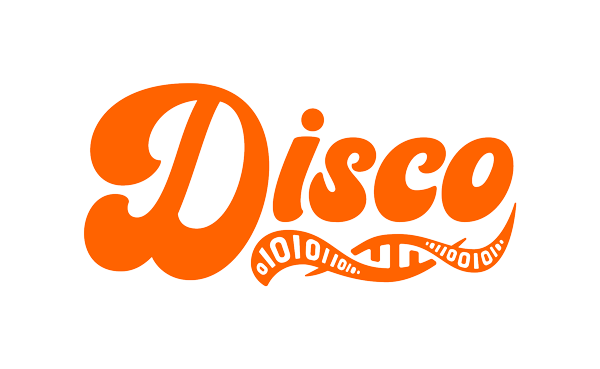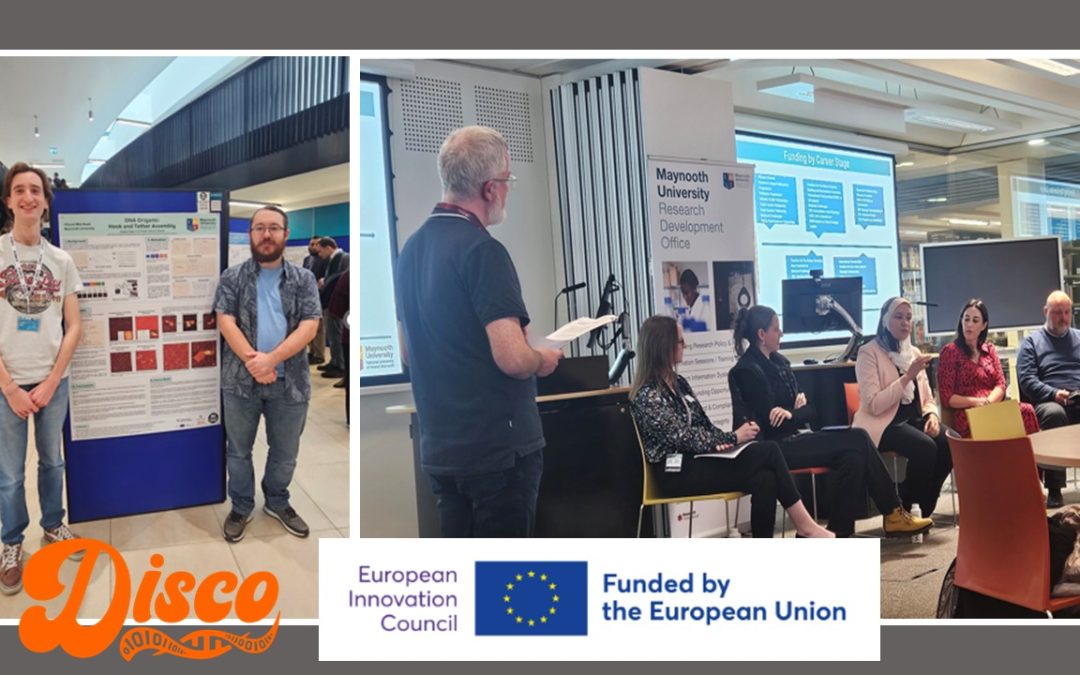
by Kim Reilly | Nov 7, 2025 | Latest News
What a busy Research Week for DISCO!
🧬 Last week we were delighted to host Dr Florent Becker from Université d’Orléans on a research visit to our TAPDANCE lab group. Dr Becker took part in our weekly lab group presentations, and also gave a Hamilton Institute seminar “Strict Self-Assembly of Discrete Fractals in the Abstract Tile Assembly Model”
For Maynooth University Research #ResearchWeek2025 we had a busy schedule throughout the week!
🎓🔦 SPUR students Eoghan Ryan and Daniel Drapeau presented posters on their research work, pictured below with DISCO postdoc Cai Wood
🧪🚀 Assistant Professor Abeer Eshra took part in the Maynooth Sparks 2025: Early Career Research, Pathways & Building Teams panel discussion on how research funding can drive early career research progression. Pictured below with Dr Patrick Boyle, Eilish Lynch, Dr Giulia Gaggioni, Niamh Wycherley, and Rob Kitchin
🌐💡The whole DISCO team took part in the Faculty of Science and Engineering “Research Connections” event in the south campus science museum. Hosted by our Dean Prof. Paul Moynagh and Associate Dean for Research Rob Elmes it provided a forum for faculty members and research students to present their research to colleagues from other departments, fostering awareness of potential areas for collaboration.

by Kim Reilly | Jul 18, 2025 | Latest News
We are delighted to be one of nine Maynooth University Research labs receiving Research Ireland funded sustainable laboratory certification!
The certification is awarded by My Green Lab in partnership with Impact Laboratories as part of Research Ireland’s Sustainable Laboratory Certification Pilot Programme which was launched in October 2023, with the aim of bringing best practice in sustainable research practices into Irish research labs.
https://lnkd.in/eEV57Bb7
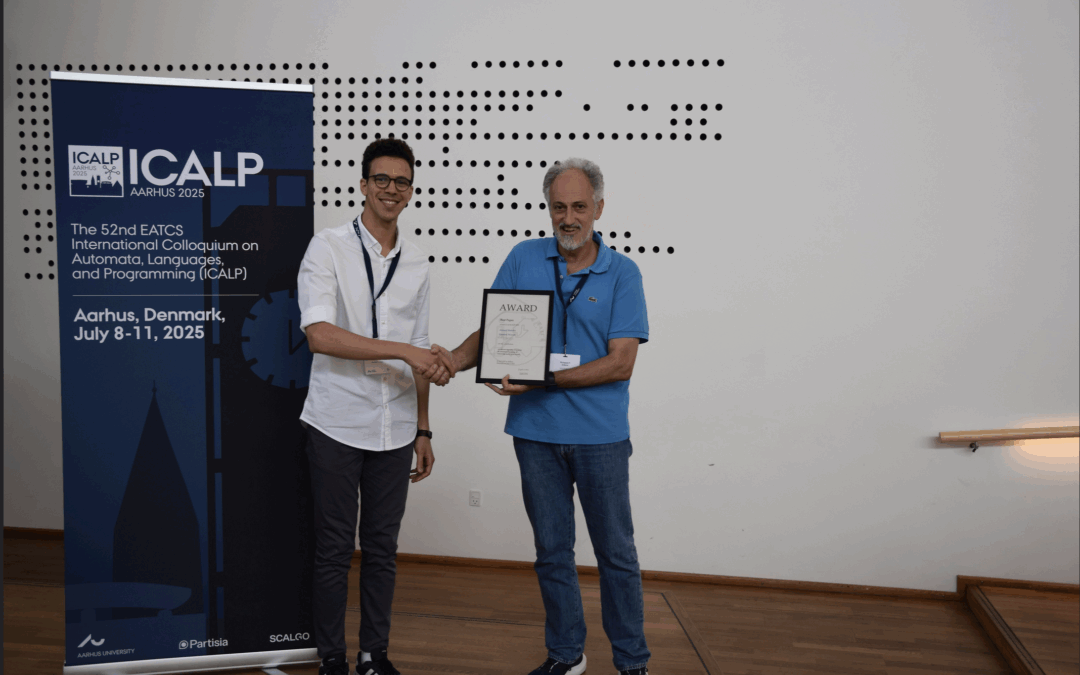
by Kim Reilly | Jul 11, 2025 | Latest News
Congratulations to group member Ahmed Shalaby who presented a paper at a joint session of ICALP 2025 at Aarhus University, Denmark, where he received the best paper award.
The paper: An efficient algorithm to compute the minimum free energy of interacting nucleic acid strands, Ahmed Shalaby, Damien Woods. LIPIcs vol. 334, pp. 130:1-130:20. ICALP 2025. It gives the first polynomial time algorithm to compute the most favoured secondary structure of a collection of DNA or RNA strands. Such a structure is called a minimum free energy (MFE) structure.
There is a several-decade history to this problem, starting with simple models of DNA/RNA binding, and leading to two important papers: In a SIAM Review paper in 2007, Dirks, Bois, Schaeffer, Winfree and Pierce gave a polynomial time algorithm to find the partition function for a small set of strands, a related problem. However, they left MFE as an open problem. That paper, and others, underlie popular software packages that handle multiple strands, such as NUPACK and ViennaRNA. However, for a large set of strands, large enough to be on a par with the total number of DNA/RNA bases, Condon, Hajiaghayi and Thachuk [DNA27, 2021] showed that MFE is NP-complete, meaning it is unlikely to have a fast algorithm. Our paper shows that if the number of strands is small, as in Dirks et al, there is in fact a polynomial time algorithm. Specifically, the algorithm handles the case of multiple identical strands, a setting which induces a rotational symmetry penalty that was awkward to handle with previous techniques
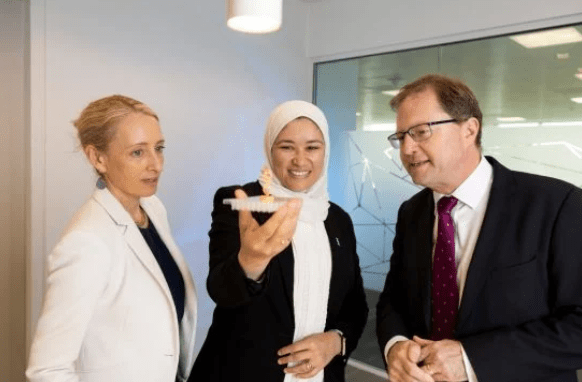
by Kim Reilly | Jul 11, 2025 | Latest News
Huge congratulations to DISCO – DNA based Infrastructure for Storage and COmputation senior postdoc Dr Abeer Eshra who has been awarded funding as part of the Research Ireland Pathway Programme.
The funding of over €675,000 covers a four-year period and supports and provides resources to establish independent research careers. It also provides each project with additional support for a postgraduate student who will be primarily supervised by the awardee.
Dr Eshra’s research, titled Thermally regulated Renewable and Automated DNA Computing Devices (TRAD), aims to create reusable, automated DNA computing systems that could open the door to greener, low-energy computing, and even lead to innovations in areas like smart drug delivery and biosensors.
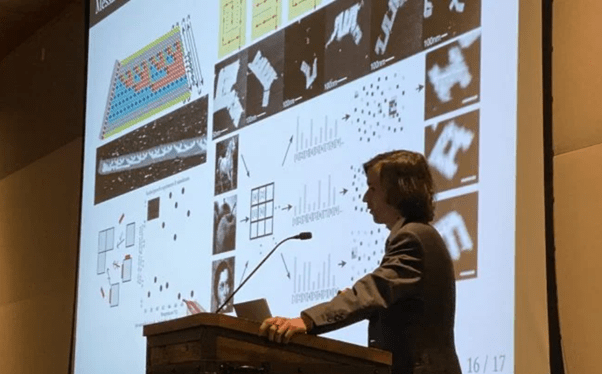
by Kim Reilly | May 9, 2025 | Latest News, Science News
HUGE congratulations to our TAPDANCE lab group member Dr Constantine Evans who is the 2025 recipient of the prestigious Dirks Prize 🧬👏
The prize recognizes exceptional early career achievement by a researcher working in any area of molecular programming including theory, experimentation and computation.
Read more here:
https://lnkd.in/e68_Evfm
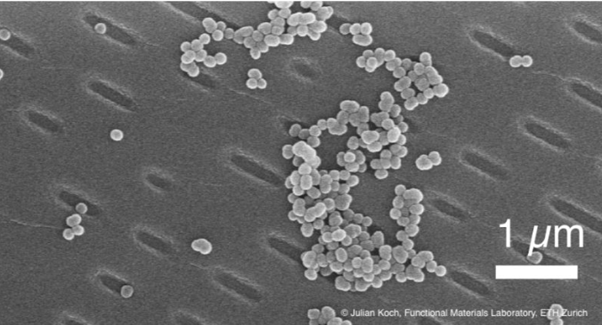
by Kim Reilly | Apr 25, 2025 | Latest News
DISCO is part of a portfolio of 9 EIC funded projects. As part of our work as a portfolio we have a dedicated DigNA portfolio LinkedIn page and are running a series of free educational webinars that aim to inform and communicate about the novel area of DNA data storage. They are aimed at a general audience and offer a fascinating insight into this new technology.
The image below is from a recent post showing an electron microscopy image of a DVD with visible pits representing data storage overlaid with small silica (glass) beads encapsulating DNA which has been used to store information.
See the full post here

